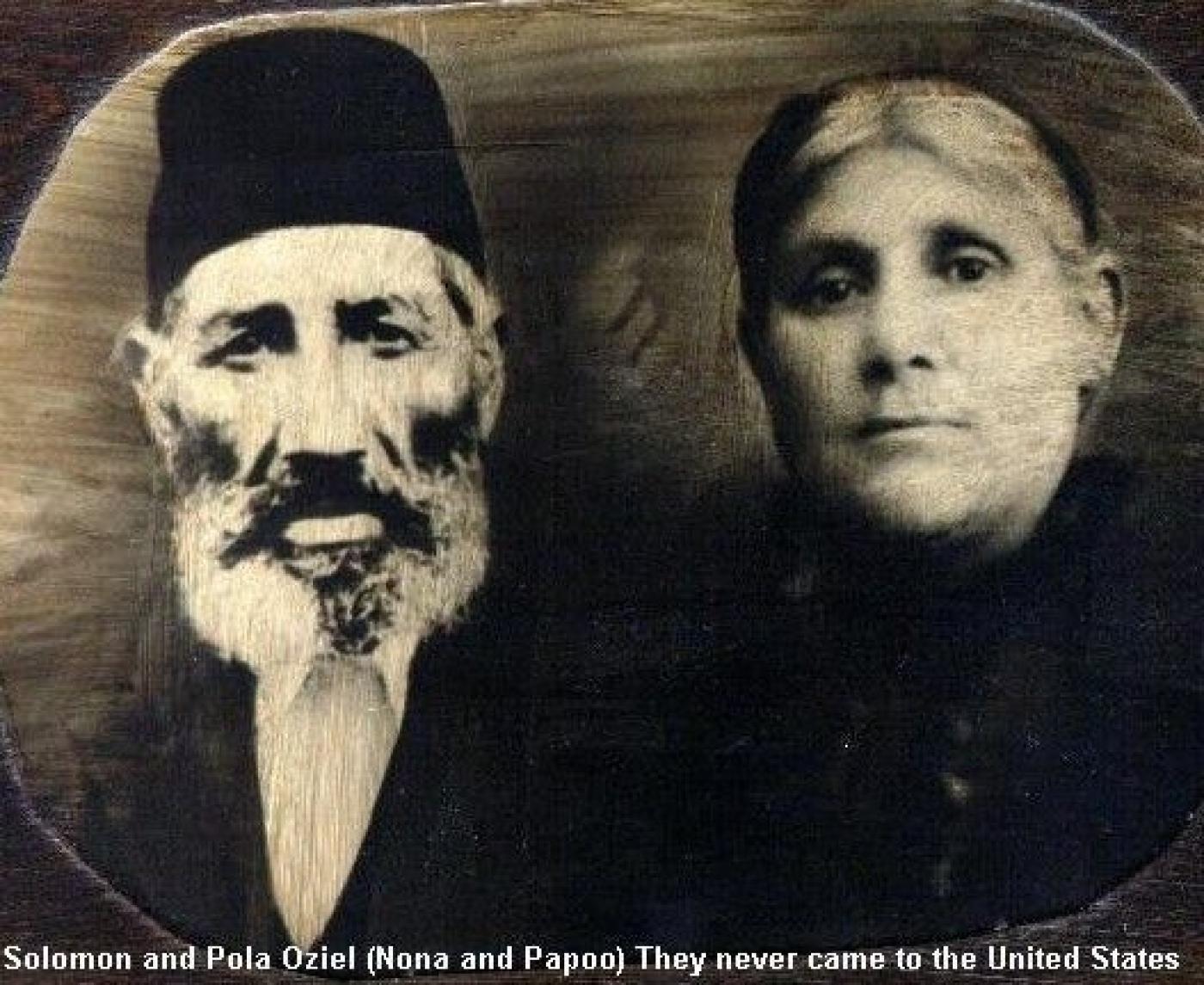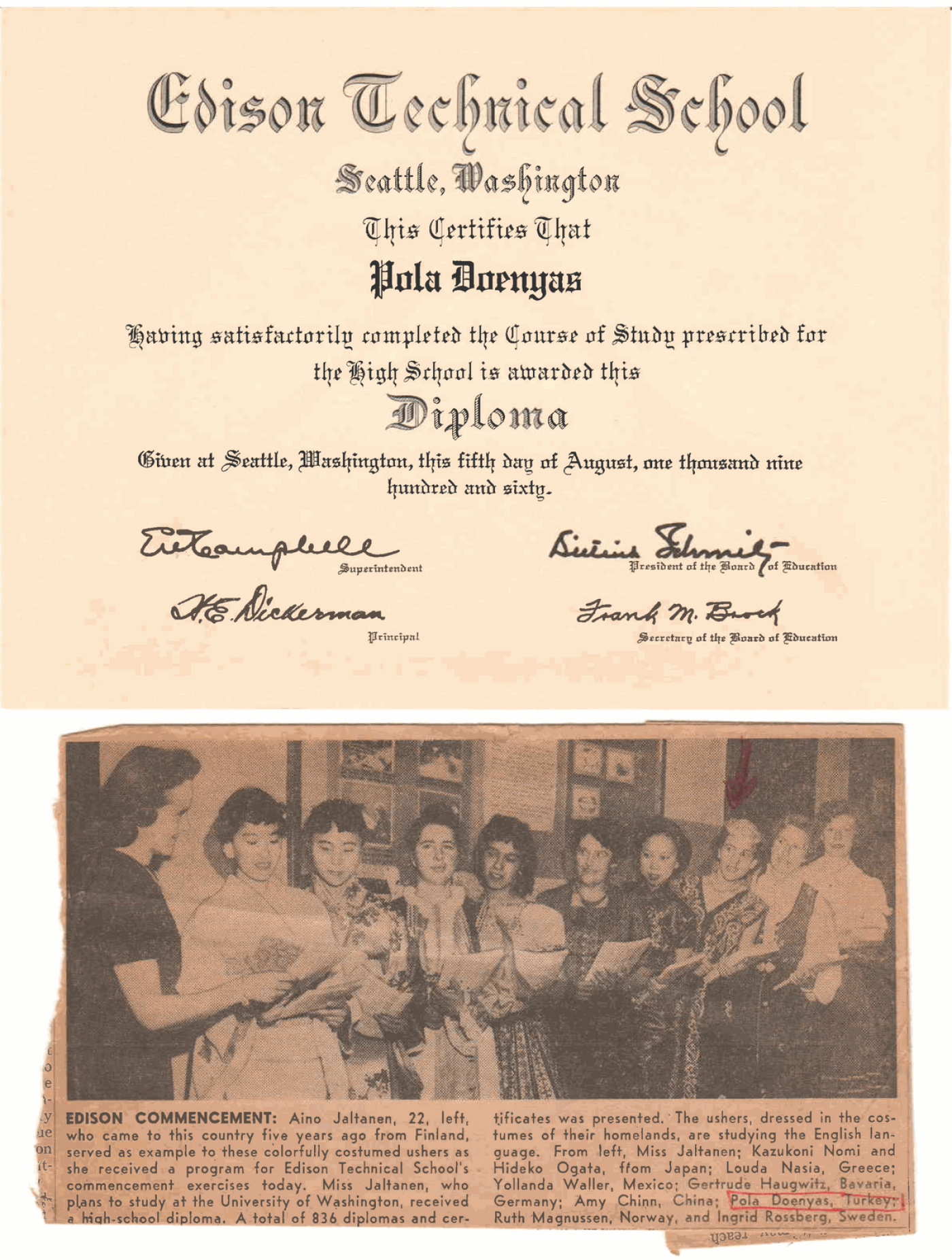Pola Doenyas
Pola Doenyas was a woman of courage, conviction, and compassion. Born in Sofia, Bulgaria, in 1929 and educated in Istanbul, she built a life defined by resilience and service. After immigrating to the United States in the 1950s, Pola pursued her education at Seattle’s Edison Technical School and the University of Washington, becoming an active and beloved member of the local Jewish community. Though she lived simply, her generosity was profound — quietly volunteering, repairing books, and supporting numerous Jewish institutions. Presented here is her story, preserved through cherished photographs, letters, and memories, and it reflects a legacy of kindness, learning, and unwavering respect for others.
Pola Doenyas spoke her mind in defense of causes and people, and her outspokenness sometimes got her in trouble. For whatever reason, she was evicted from the senior residence where she had lived for about 20 years, and was rendered homeless at the age of 86. Shortly thereafter, she suffered a stroke, was hospitalized at Harborview Hospital and transferred, comatose, to the Kline Galland home. She died on December 13, 2015, without having regained consciousness. Her belongings were put into two packed rooms in a First Hill storage facility, and one of the rooms contained a mattress where Pola probably slept. At her death, Pola’s lifelong accumulation of possessions was reduced to a box of photos, correspondence and official documents.
There are photos of cousins in California and of friends. If photos in the box were labeled at all, most of the people pictured are identified by first name only. (She knew who they were, so why was it necessary to put in their complete names?) Pola graduated from high school In Istanbul in 1946, as attested to by a diploma in the box. Nevertheless, in 1960, Pola received a high school graduation diploma from Edison Technical School, a forerunner of Seattle Central Community College. There is a glossy photo and a 1958 newspaper article of a group of young women foreign students at Edison in the costumes of their native countries, with a smiling Pola representing Turkey. Pola attended the University of Washington from 1960 to about 1963. And Pola may have been an adjunct instructor at the University of Washington for many years, although there is no supporting documentation.
Pola lived simply and frugally, “like a poor woman,” as Rabbi Simon Benzaquen of Seattle’s Sephardic Bikur Holim put it, but she could be seen at most Jewish cultural events around Seattle and left substantial gifts to many organizations and institutions in the local Jewish community, including the Washington State Jewish Historical Society. There is a signed “Certificate of Recognition” dated June 18, 2010 acknowledging Pola’s “7 years of service,” but nothing that says for what organization she served. And there is a plaque proclaiming Pola Kline Galland’s 2008 “Jessie Danz volunteer of the year.” Rabbi Benzaquen tells of Pola quietly volunteering at SBH and repairing many books in its library.
During her lifetime, Pola touched many lives. Word of Pola’s death spread quickly and at her funeral, the chapel of the Sephardic Brotherhood Cemetery was full. Rabbi Benzaquen said of Pola, “She was a very private person. And a modest one. Always spoke with the knowledge and understanding that every person is worthy of respect.... I think she would be embarrassed listening to what I am saying, but she was that kind of unassuming person who never wanted to be made a fuss of.”
Photos and documents donated by the family with special thanks to Pola's cousin, Irv Camhi, who helped identify individuals and gave descriptions to many of the photos.
Pola was born in Sofia Bulgaria in 1929. There are photos of Pola’s parents, Yako and Mazalto Doenyas, and of her sister Roza’s 1954 wedding to Morde “Mike” Israel in Istanbul, Turkey. Pola and her parents left Turkey for Cuba in 1956. Morde Israel’s sister, Lucy Freund, and her husband lived in Seattle. There is a photo of Pola, Roza and Morde in Seattle in 1957. Correspondence with immigration authorities and Senator Henry Jackson documents Pola’s and Roza’s efforts to bring their parents to America. Yako and Mazelto Doenyas finally arrived in Seattle in 1962.



